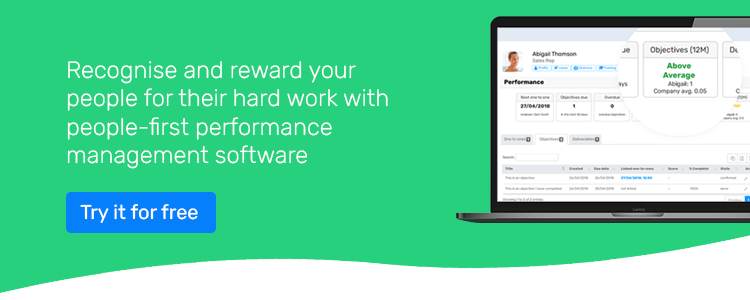Everyone has a different management style - just as everyone has different personality traits. But are you aware of the different management styles within your SME?
Understanding management styles can help to boost business success by improving communication & making collaboration easier. After all, if you know someone's style of management, this can help employees & business leaders to better understand working methods & see things from another perspective.
In this blog, we'll look at the different styles of management (according to Hay-McBer) and how your SME can use these to maximise potential.
Why is management style important?
Management style is important because the way you manage impacts your team and their success. As a leader, you'll want to get the best out of your staff - and the greatest leaders know how to motivate their teams to maximise their potential.
A great management style will achieve goals, empower people and create better job satisfaction. You're also more likely to retain staff - as the old saying goes, 'people don't leave bad jobs, they leave bad bosses', after all.
As much as ability, skills & dedication will have an impact on how well someone does a job, how high their self-esteem is can have an even bigger one – you can have the best team in the world but if your management style is poor, it will impact performance.
This is why it's so important to be aware of management styles & how they can impact your people - and your business.
What are the different styles of management?
The 6 Hay-McBer management styles:
Your style could be commanding, or it might be collaborative. You might be more of a visionary or you could use a coaching style. Some people stick to the same general style whoever they are dealing with, where others will adapt their style depending on the person in question.
Hay-McBer splits management styles into 6 different categories:
1. Directive/Coercive style
If you use the directive style of management, it's safe to say you’re the sort of person who expects compliance from their employees. You tend to want employees to do things the way you want them to and get them to comply by making threats and using discipline.
This management style can work well in high-pressure situations. However, it can also demotivate employees who can feel their every move is being watched & feel micromanaged.
Feeling like someone is breathing down your neck (or fearing consequences) doesn't make for a healthy, productive work environment at all - so beware of this management style.
2. Authoritative/Visionary style
Managers who use an authoritative style prefer to give their employees more of an overall vision, rather than specific instructions. This style is also known as inspirational leadership. If you adopt this style, you tend to motivate through persuasion and feedback. You also prefer to set goals and let employees work independently.
It's great to trust your team to get on with the task, offering them a lot of autonomy. But this management style might not work so well with junior employees who may need more specific direction on their work.
3. Affiliative style
An affiliative boss tries to be everyone’s friend. They promote harmony, trust and aim to create a positive relationship with teams. If this is your style, you probably don’t enjoy conflict and instead try to motivate by keeping everyone happy.
This works if employees are performing routine tasks and can help when conflict arises in the workplace. However, it’s less effective when dealing with a crisis or when firmer leadership may be required.
4. Participative/Democratic style
If you follow a participative style, you tend to lead by consensus rather than directing employees. You encourage input from all your employees, valuing all opinions and you reward team effort.
As with the affiliative style, it works well when things are on an even keel, your staff are experienced and know their jobs and there is no crisis to trip you up. It works less well when staff are not co-ordinated or when a problem arises and clear direction is required.
5. Pacesetting style
Pacesetters have extremely high standards & set a working pace that they expect staff to follow the example of. Managers with a pacesetter style prefer to do most of the work themselves, meaning there's not always room for other points of view.
It’s great when teams are already motivated and know what they’re doing. It's less effective when employees need developing and can lead to some feeling inadequate or even left behind.
6. Coaching style
The manager with coaching-style tendencies is very focussed on the development of their team, which is great. Learning & development is encouraged and supported, and managers are keen to focus on promotion - they're likely to be happy giving employees more responsibility in order for them to progress.
The coaching style of management runs a risk of creating unhealthy competition between employees. Like all management styles, it might not work for every employee.
Putting management styles into practice
You might identify with one particular management style more than others but you don’t have to stick to just one. Ask yourself which one best suits your leadership style - but also consider what style best suits your team.
Flexibility is always a good idea, and you might find yourself adapting your management style depending on the person or group you're dealing with.
Savvy leaders realise that one size doesn't fit all, and they adjust their management style as necessary.
You can easily store performance records for your team all in one place with Breathe.
Why not take out a free 14-day trial today and see for yourself?

Author: Aimée Brougham-Chandler
An IDM-certified Digital Copywriter (2023) & English Language & Literature graduate (BA Hons), Aimée is Breathe's Content Assistant. With 3 years' content marketing experience, Aimée has a passion for writing - and providing SME HR teams with solutions to their problems. She enjoys delving into & demystifying all things HR: from employee performance to health and wellbeing, leave to company culture & much more.





